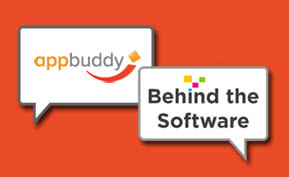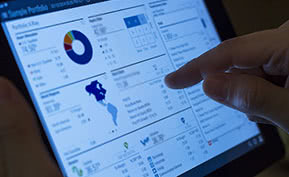Business Intelligence
Medical
What Is Health Data Management Software?

Information management and the paper trail is a vital function for any organization, but especially so at a medical office. The reasons are obvious: a medical clinic or hospital has to deal not only with standard logistical concerns like inventory and accounting, but the physical well being of its clients as well.
Health data management software is geared towards managing the records of up-to-date data on individual patients and groups at a medical facility including everything from essential items like vitals, allergies and blood type to more long-term items like medical and treatment histories.
Sorting Out the Terminology
Making sense of this software segment isn’t the easiest thing to do as it abounds with even more jargon and alphabet soup syndrome than the average enterprise software segment. At first glance “healthcare management” and “health data management” software seem to be very different from one another, but the point of divergence comes from the fact that the former is a broader category of software designed to handle the internal processes of a medical care facility including administrative duties like inventory management and HR functions. In contrast, health data management is narrowly tailored towards functions directly affecting and/or monitoring information related to a patient or group of patients’ health.
Another segment that intersects with health data management is that of electronic health records/electronic medical records, or EHR/EMR. In fact, the line of demarcation isn’t entirely clear, but broadly speaking, EHR and EMR are two similar but distinct systems for the actual input, documentation and dashboard display of patients of an enterprise-wide system of facilities or a single care facility, respectively. In fact, more advanced EHR and EMR systems might include targeted analytics as part of their data processing capabilities, assisting physicians and other caregivers in the facility in diagnosing maladies and checking them against a patient’s medical history.
Rather than carry out those functions directly itself, health data management refers to the systems that actually organize and tabulate those data sets and analytic capabilities as part of the IT infrastructure of the enterprise or single facility.
Variations of Health Data Management Software
Much like how there are CRM and ERP solutions custom-tailored for the needs of specific verticals, there are solutions in the health data management segment optimized for use in virtually every specialty and field in medicine, including:
The specific functions will vary depending on the type of medical care the health data management developer is aiming to service. For example, general care will prioritize functions centered around the management of admissions, transfers and discharges, keeping a steady log of exactly where a patient goes within a facility, which caregivers he or she visits and which procedures they undergo. Obviously, this serves an invaluable role of tracking records in what is a high-risk industry with heavy repercussions for poor performance at any stage.
Much like how larger medical facilities branch off into specialized departments, software designed for larger enterprises will typically be modular solutions, allowing administrators to handpick for adoption those functions (cardiology data, optometry, etc.) that match the departments that actually exist.
Growing Importance
Software geared towards the management of medical facilities and logging of medical records has been around for awhile now. While many practices, especially smaller ones, still use analog means of record storage, that is to say, physical paper records stored in filing cabinets, recent legislation in the United States and elsewhere has placed mandates on the overall level to which facilities and individual practitioners must begin to digitize all their reams of data and backlogs.
With that in mind, health data management and all associated segments and niches are most likely going to see a marked increase in both supply and demand as well as adoption in the near future. Whether these newer systems will be able to provide medical professionals with all the functionality they need to operate at full efficiency, however, remains to be seen.
Want more information on medical software solutions? Browse helpful product reviews and blog posts on our medical software resource center page. Ready to purchase medical software for your company? Download one of our free medical software reports to compare leading medical software providers by pricing and key features.





